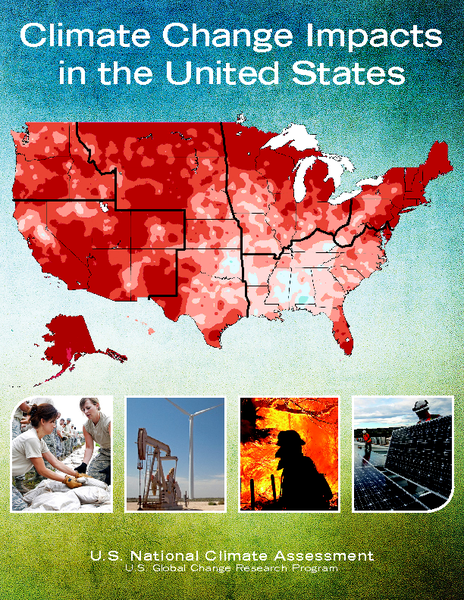Climate Change 8: “Pseudoscience,” Politicized Science, and the Consequences of Energy Poverty

Climate scientists Patrick Michaels and Paul Knappenberger’s terrific new book exposes the “pseudoscience” that the “the debate is over” crowd relies on for their alarmist dictates. That crowd is big and powerful, but nowhere near 97% of climate scientists (or anybody else) endorse the impoverishing policies that will change our climate in ways that won’t even be measurable 75 years from now.
The book, Lukewarming: The New Climate Science that Changes Everything, acknowledges that climate change is real and partially man-made, but shows that the mild, gradual warming we are experiencing doesn’t come close to the catastrophic levels predicted by the model estimates used by the UN’s Intergovernmental Panel on Climate Change (IPCC).
Michaels and Knappenberger understand how “governments can buy science” but say it’s actually refreshing “when governments frankly admit that the documents their scientists produce are designed to support government policies.” That happened in 2014 when the National Oceanic and Atmospheric Administration proudly released the Third National Climate Assessment and called the report “a key deliverable of President Obama’s Climate Action Plan.” Here is part of the blistering 133-page review of the report that Michaels and Knappenberger issued:
One wonders how familiar the 240 authors of the 2013 draft National Assessment are with Karl Popper’s famous essay on the nature of science and its distinction from “pseudoscience.” The essential difference is that science only explains some things and that its hypotheses forbid others, while a theory that is not refutable by any conceivable event — i.e., one that is universally and comprehensively explanatory — is pseudoscience. …
This National Assessment is much closer to pseudoscience than it is to science. It is as explanatory as Sigmund Freud. It clearly believes that virtually everything in our society is tremendously dependent the surface temperature, and, because of that, we are headed towards certain and inescapable destruction, unless we take its advice and decarbonize our economy, pronto. Unfortunately, the Assessment can’t quite tell us how to accomplish that, because no one knows how.
In the Assessment’s 1200 horror-studded pages, almost everything that happens in our complex world — sex, birth, disease, death, hunger, and wars, to name a few — is somehow made worse by pernicious emissions of carbon dioxide and the joggling of surface average temperature by a mere two degrees.
Virtually every chapter in the Assessment perseverates on extreme weather, despite the U.N.s Intergovernmental Panel on Climate Change statement that: “There is medium evidence and high agreement that long-term trends in normalized losses have not been attributed to natural or anthropogenic climate change.”
The Assessment is woefully ignorant of humanity’s ability to adapt and prosper in response to challenges. The quintessence of this is the truly dreadful chapter on human health and climate change. …
Does this community of experts understand that the number of lives that it effectively saved is orders of magnitude above and beyond it could possibly cost? It seems, given the panoply of horrors due to start pronto, to prefer that we not have emitted carbon dioxide in the first place. Perhaps they ought to look a place that didn’t. Surely part of the $3.5 billion that the US Global Change Research Program (USGCRP) consumes per year could finance a field trip to Chad, so they can see the world without cheap and abundant energy.
And what is the purpose of this Assessment? The motto of the USGCRP says it all: Thirteen Agencies, One Mission: Empower the Nation with Global Change Science. The operative word is “empower,” which is the purpose of the Assessment. It is to provide cover for a massive regulatory intrusion, and concomitant enormous costs in resources and individual liberty. History tells us that when scientists willingly endorse sweeping governmental agendas fueled by dodgy science, bad things soon happen. To borrow the meter of Winston Churchill: Never in the history of pseudoscientific consensus will so much be done to so many by so few.
Peter Zeller is Director of Operations at Center of the American Experiment.